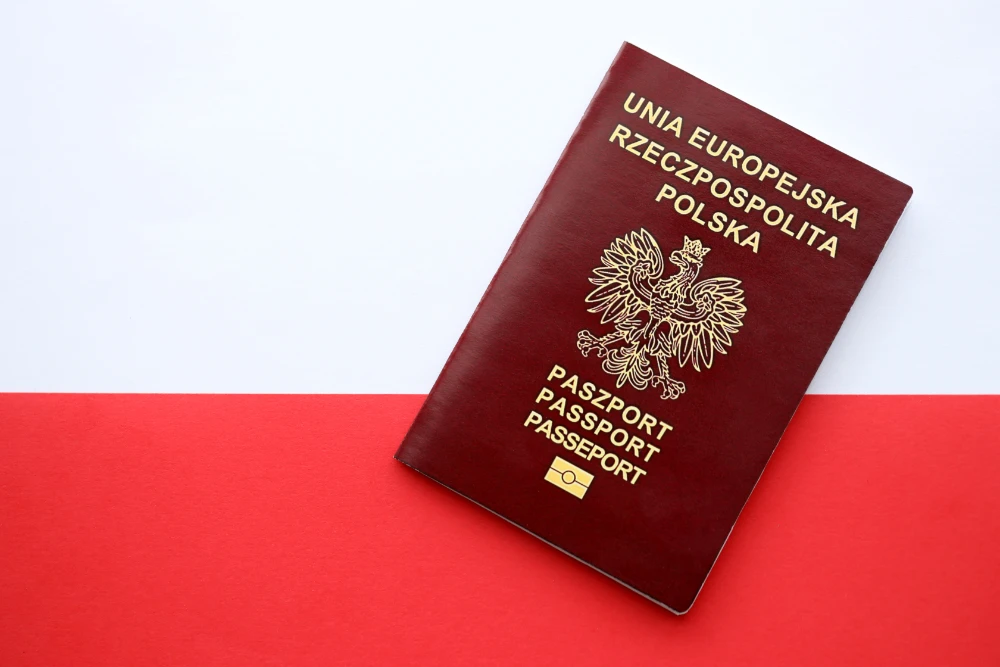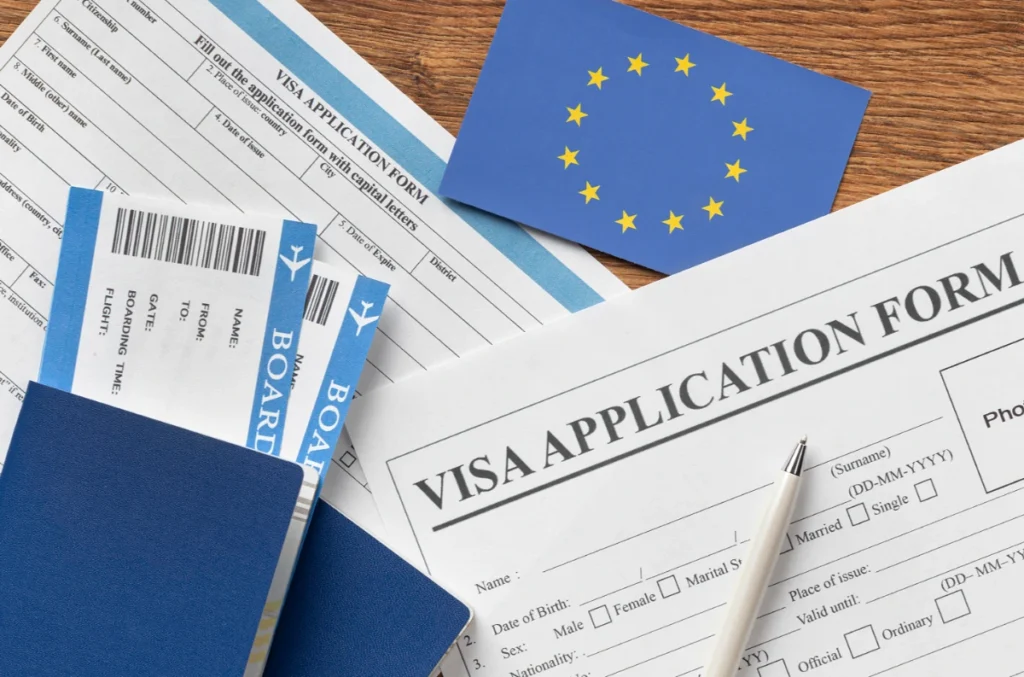Obtaining Polish citizenship is a significant step for many foreigners who have built their lives in Poland. It offers not only full civic rights but also legal stability and a sense of security — especially for those who live, work or run a business in the Republic of Poland.
This article outlines the two most common legal ways to obtain Polish citizenship: granting of citizenship by the President of Poland and recognition as a Polish citizen by the Voivode (wojewoda – polish administrative authority). Understanding the differences between these procedures will help you choose the right path and successfully navigate the legal process.
Legal basis: The Polish Citizenship Act
Polish citizenship is regulated by the Act of 2 April 2009 on Polish Citizenship (Journal of Laws of 2023, item 1989, as changed).
According to Article 4 of the Act, Polish citizenship may be acquired through:
- automatically under the law,
- a presidential grant of Polish citizenship,
- recognition as a Polish citizen,
- restoration of Polish citizenship.
This guide focuses on the two procedures most relevant for foreigners: the presidential grant of citizenship and administrative recognition as a Polish citizen by the wojewoda.
1. Granting citizenship by the President of Poland
How to obtain Polish citizenship? One of the ways is through the granting of citizenship, also known as naturalization. This is a discretionary decision made by the President of the Republic of Poland.
Any foreigner may apply for Polish citizenship by granting, regardless of the length of stay or the basis for their legal status in Poland. In practice, applications for granting citizenship are submitted by foreigners who, for example:
- do not meet the conditions for recognition as a Polish citizen,
- are engaged in social or economic activities important for the country,
- have special contributions to Poland.
This path is often chosen by individuals active in professional, scientific, or social fields.
Procedure – Application for granting of Polish citizenship
The procedure for granting Polish citizenship is as follows:
1) The application must be submitted personally or by mail (with a notarized signature) to the wojewoda (regional administrative authority) or a Polish consul.
2) The documents are then forwarded to the Minister of the Interior and Administration, and subsequently to the Chancellery of the President of the Republic of Poland.
3) The President issues a decision which can be:
- positive -–the foreigner receives a decision granting Polish citizenship,
- negative – the foreigner receives a decision refusing the grant of citizenship.
Important – granting of Polish citizenship by the President
Even if the foreigner meets all formal requirements, the decision to grant citizenship rests solely within the discretionary powers of the President of the Republic of Poland.
This means that the outcome of the procedure cannot be predicted, and there is no legal remedy or appeal against the decision.
What if you have previously applied for recognition as a Polish citizen?
According to Article 23 of the Act on Polish Citizenship, submitting an application for granting citizenship by the President during an ongoing recognition procedure results in the discontinuation of that recognition process.
Therefore, before taking any action, it is important to carefully consider which procedure – recognition as a citizen or granting of citizenship – is the appropriate one to choose.
2. Recognition as a Polish citizen by the Voivode
Recognition as a Polish citizen is a formal administrative procedure available to foreigners who meet strictly defined conditions.
Unlike the granting of citizenship by the President of the Republic of Poland, this procedure is governed by the provisions of the Code of Administrative Procedure. Consequently, in the event of a refusal decision, the applicant has the right to appeal to the Minister of the Interior and Administration.
Who can be recognized as a Polish citizen?
The Act on Polish Citizenship, in Article 30(1), provides seven situations in which foreigners may apply for recognition as Polish citizens.
1) a foreigner who has resided continuously in the territory of the Republic of Poland for at least 3 years based on a permanent residence permit, an EU long-term residence permit, or the right of permanent residence, who has a stable and regular source of income in the Republic of Poland and a legal title to occupy a residential premises;
2) a foreigner who has resided continuously in the territory of the Republic of Poland for at least 2 years based on a permanent residence permit, an EU long-term residence permit, or the right of permanent residence, who:a) has been married for at least 3 years to a Polish citizen, or b) does not have any citizenship;
3) a foreigner who has resided continuously in the territory of the Republic of Poland for at least 2 years based on a permanent residence permit granted in connection with refugee status granted in the Republic of Poland;
4) a minor foreigner residing in the territory of the Republic of Poland based on a permanent residence permit, an EU long-term residence permit, or the right of permanent residence, whose one parent is a Polish citizen, and the other parent, who does not have Polish citizenship, has given consent to this recognition;
5) a minor foreigner residing in the territory of the Republic of Poland based on a permanent residence permit, an EU long-term residence permit, or the right of permanent residence, whose at least one parent has had Polish citizenship restored, and the other parent, who does not have Polish citizenship, has given consent to this recognition;
6) a foreigner who has resided continuously and legally in the territory of the Republic of Poland for at least 10 years, who meets all of the following conditions:
- holds a permanent residence permit, an EU long-term residence permit, or the right of permanent residence,
- has a stable and regular source of income in the Republic of Poland and a legal title to occupy a residential premises;
7) a foreigner who has resided continuously in the territory of the Republic of Poland for at least 1 year based on a permanent residence permit obtained due to Polish origin or possession of the Karta Polaka.
Procedure – recognition as a Polish citizen by the Voivode
A foreigner may apply for recognition as a Polish citizen by submitting an application to the voivode (regional governor) competent for their place of residence in Poland.
The process consists of the following stages:
1) submission of a application and required forms, either in person or by post,
2) verification of the submitted documents and assessment of whether the statutory conditions have been met,
3) issuance of an administrative decision – either granting or refusing Polish citizenship.
If the decision is negative, the foreigner may file an appeal to the Minister of the Interior and Administration, and subsequently file a complaint with the provincial administrative court.
When can the Voivode refuse recognition as a Polish citizen?
The voivode may refuse to recognize a foreigner as a Polish citizen if:
- the applicant does not meet the conditions specified in Article 30 of the Polish Citizenship Act,
- there is a threat to state security, public order, or other important interests of the Republic of Poland.
This is why professional preparation of the documents and a thorough assessment of the applicable legal criteria is crucial before submitting an application.
Granting vs. recognition of Polish citizenship – which procedure to choose?
Both procedures lead to the same legal result – acquiring Polish citizenship – but they differ significantly in their rules, duration, and predictability.
Granting of Polish citizenship:
- the decision is made by the President of the Republic of Poland,
- it is a fully discretionary procedure – even if the applicant meets some conditions, the decision may still be negative,
- there are no appeal procedures or other legal remedies available,
- there are no statutory criteria defined by law,
- the outcome of the proceedings is difficult to predict,
- the lenght of the proceedings can vary and is not regulated by law.
Recognition as a Polish citizen:
- the decision is issued by the voivode,
- it is an administrative procedure based on strictly defined statutory requirements,
- in the event of a refusal, it is possible to appeal to the Minister of the Interior and Administration and then to an administrative court,
- the procedure is more predictable, as it is conducted under the Polish Code of Administrative Procedure – if the conditions are met, the applicant has a legal basis to obtain citizenship,
- the time of the procedure is governed by time limits defined in the Polish Code of Administrative Procedure.
Want to become a Polish citizen? Make an informed decision
The decision whether to apply for recognition or request the President to grant Polish citizenship should be based on your legal circumstances. Each path has its own rules and limitations. A well-prepared application is often the key to success – especially with the support of an experienced immigration lawyer.
Obtain polish citizenship with the help of an immigration lawyer
Need legal assistance in your Polish citizenship case? I specialize in immigration law and support foreigners throughout the entire administrative or discretionary process – from the initial application to the final decision.
As part of the cooperation, I offer:
- analysis of your situation,
- selection of the appropriate procedure: recognition or granting of Polish citizenship,
- preparation of a complete set of documentation,
- representation before authorities and in court proceedings.
This article is intended for informational purposes only and does not constitute legal advice. For assistance in individual cases, we encourage you to contact our law firm directly.
Do you need legal assistance with legalizing your stay or work in Poland?
👉 Legal support in Polish citizenship case





